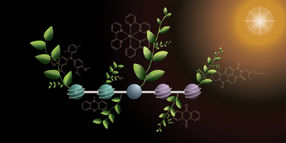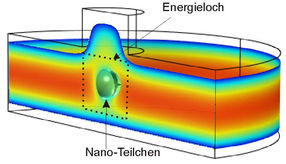Long-term research project on safety of nanomaterials launched
Around €5 million research volume
Advertisement
The Federal Ministry for the Environment, Nature Conservation and Nuclear Safety (BMU), the Federal Institute for Occupational Safety and Health (BAuA) and BASF SE have launched a joint safety research project. Long-term studies are planned to investigate potential chronic effects of nanoparticles in the lung. Federal Environment Minister Dr. Norbert Röttgen welcomed this unique research collaboration: "With this large-scale project, Germany is not only assuming the global leadership in safety research for nanomaterials. This trustful cooperation between the Ministry, higher federal authorities and industry is also exemplary and unprecedented in its scope." The studies are scheduled to run for four years and comply with the testing guidelines of the OECD (Organisation for Economic Co-operation and Development). Total project funding amounts to €5 million.
"No comparable long-term studies of this scope have yet been performed to determine the impact of nanomaterials. As a company, we want to seize the enormous opportunities offered by nanotechnology. We therefore also consider it our duty to clarify open issues and close gaps in our knowledge. In this way, we assume responsibility for our actions and towards society," explained Dr. Andreas Kreimeyer, Member of the Board of Executive Directors and Research Executive Director of BASF. The chemical company has long experience in the field of nanosafety research and has internationally recognized scientific expertise. In this project, BASF will be conducting the inhalation studies. The stewardship and overall coordination of the project rests with the BMU. The detailed coordination and subsequent evaluation of the results will then be performed by the BAuA, the Federal Environment Office (UBA) and the Federal Institute for Risk Assessment (BfR) as independent competent authorities. An external advisory committee of high ranking, internationally recognized, independent scientists will be providing scientific support for the investigations.
The goal of the study is to allow thoroughly researched statements to be made regarding the long-term effects of various important nanomaterials. One special focus is on investigating effects in the low-exposure range which are of major significance for the workplace and the environment. "This study will for the first time determine chronic effects of nanomaterials in the low-dose range. The resulting data will make it possible to estimate risks and establish limit values. With this project, we will be making a major advance in health and environment protection," said Isabel Rothe, President of the Federal Institute for Occupational Safety and Health.
































































